David Simon interview “SHOW ME A HERO” on HBO
David Simon is the creator of The Wire, which is often cited as the greatest television drama of all time. I wouldn’t argue with that label. His latest project is SHOW ME A HERO, a 6-hour miniseries on HBO, starring Oscar Isaac, Alfred Molina, Catherine Keener, Winona Ryder and many others, directed by Paul Haggis (“Crash”) and based on the book of the same name by Lisa Belkin. It is Executive Produced by Nina K. Noble, Gail Mutrux and William F. Zorzi.
Logline: In an America generations removed from the greatest civil rights struggles of the 1960s, the young mayor of a mid-sized American city is faced with a federal court order that says he must build a small number of low-income housing units in the white neighborhoods of his town. His attempt to do so tears the entire city apart, paralyzes the municipal government and, ultimately, destroys the mayor and his political future.
Q: When did you become aware of Lisa Belkin’s book? What initially struck you about it, and when did you see the potential for adapting it for the screen?
DAVID SIMON: The book was actually forwarded to me by Gail Mutrux, whose judgment about such things I am obliged to take very seriously: She was the producer, working with Barry Levinson, who found a book that I wrote called “Homicide” in 1991 and sparked its transformation into the NBC television show. So when Gail recommends a book, I do listen.
I thought “Show Me a Hero” offered a perfect storm of a narrative about our enduring racial and class pathologies and the not-in-my-back-yard, don’t-tread-on-me sensibilities of modern libertarian and neoliberal politics. This is the grievous state of the American political dialectic, in which the only two operant currencies seem to be greed and fear.
I showed the book to my longtime newspaper colleague, Bill Zorzi, who was then an editor on the metro desk of the Baltimore Sun and asked him what he thought. As a veteran political reporter, Zorzi astutely realized that in the story of what happened to Yonkers, and in the powerful narrative arc of Nick Wasicsko, we had a story in which we could precisely depict how government actually works in America. Or doesn’t.
So we were sold.
Q: The events of SHOW ME A HERO seem less like history from a quarter-century ago, and more like a variation on current situations. Do you agree? Do you see any hints in the story of ways to avoid the “Groundhog Day”-like replay of such conflicts in the future?
DS: The American obsession with race and class – and the political uses of greed and fear – is still very much our national paradigm. We are getting better, slowly and inexorably, generation by generation. But there is much work still to be done to reconcile many Americans to the idea of a desegregated society, to power-sharing, to the very idea that all of us must share in the same national future. It’s going to be going on for a good long while, but integration itself – and the inevitable emergence of a stronger black and Latino middle class – is going to change more and more minds, particularly among younger Americans who come to the debate with less baggage.
We are growing up, but when it comes to issues of race and class, we are still fighting through our adolescence. Considering the point of origin for the American struggle with race – slavery and Jim Crow – I find it remarkable and substantial that an African-American president was inaugurated in my lifetime, or for that matter, that I am finally seeing the Confederate battle flag lowered in places like South Carolina. But it’s been a long journey, and exhausting, and there is so much farther to travel.
Yonkers didn’t just happen there – it’s been the dynamic in Baltimore, in Chicago, in Dallas and everywhere that society is asked to deal with housing and school enrollment patterns that purposely segregated communities. The Obama administration’s recent efforts to address this in its new housing regulations have again shaken the hornet’s nest. This war will not be won with any singular victories.
Q: Although many characters figure in SHOW ME A HERO, do you see this first of all as Nick Wasicsko’s story? Could he be viewed as a tragic hero, albeit one who is initially reluctant to do the right thing?
DS: Like most heroes – and most villains – Nick Wasicsko was not wholly one thing or the other. He had his flaws and he was blind to certain realities. But when push came to shove, he believed in the rule of law and he came to understand that he had a responsibility to lead his city under the rule of law, and more than that, he came to realize that the housing consent decree was offering some of his most vulnerable constituents a chance at a better life. He is, to that extent, quite heroic. And yes, our six-hour narrative is structured around Mr. Wasickso’s journey. After all, the fights over the remaining phases of the housing and school desegregation orders in Yonkers went on long after our story concludes in 1994. The entire case wasn’t settled until 2007.
Q: Your projects for HBO have always been marked by a strong team of collaborators. Here, two stand out. You’ve worked with William Zorzi for a long time. What is the writing process like for the two of you, since you obviously know each other well? What were the biggest challenges in adapting the book?
DS: Bill is one of the most conscientious, deliberate and thorough reporters I’ve ever known or worked with. He took Lisa Belkin’s worthy book as a jumping-off point and immersed himself in the world of Yonkers for more than a decade before production began on this miniseries. He knew all of the surviving characters in the story, including many who he met and interviewed in detail who are no longer with us today. And he has been rigorous about trying to pull as much of the story as possible through the keyhole of six hours. In that sense, he has been the creative flame here, script-wise, and I have had the benefit of beginning with enough material for ten or twelve hours.
My job has been to tighten and reshape some of the story arcs so that they fit within the time we have, and to prioritize the material and find shorthand ways of explaining, or at least acknowledging, complex political realities and nuances. For me, it’s been tricky. For Bill, it’s a little bit of torture to see how much fits and how much doesn’t, how much of the complicated politics and history of what happened in Yonkers can be referenced, and how much must be glanced at or omitted. We did our best and, look, we’ve known each other and worked with each other for 30 years now. We trust each other as a team, although that doesn’t mean we didn’t argue, or that Bill didn’t worry the details, or that I could let the narrative wander too far into tall grass.
And then I would be remiss if I didn’t credit good notes from Gail Mutrux and Nina Noble, who absorbed the scripts in their various draft forms and assessed the work with fresh eyes, arguing us out of redundancies or urging us to think more deeply about some of the arcs. Gail was unwilling to lose the power of the book that she discovered so many years ago, and Nina wanted to be sure that what we were trying to say could be conveyed as drama, rather than simply as political discourse. They imposed essential values on the process.
Q: Paul Haggis is a new creative collaborator for you. How did he get involved? His film “Crash” in some ways paralleled your work in the use of multiple story lines and a wide variety of characters. Did that suggest he was a kindred spirit to you?
DS: I was looking for a director who had a strong visual sense, who understood the parameters not simply of feature films, but of hour drama – and Paul has done both – and who had a political temperament that could believe in a story that had very little sex, or gunplay, or broad humor. This work can’t be honest and rely on any of the currencies that seem to work so handily in television. I needed a director to believe that it was a worthy and necessary journey to examine politics as it is practiced on the municipal level, and race as it plays out on the street level, and class as perhaps the most divisive and misunderstood force in American life.
Paul Haggis has been grappling with such things admirably, not only in his filmmaking, but in his personal priorities. His commitment to the relief efforts in Haiti spoke to me especially and seemed to me allegorical for someone who accepts a personal share in the responsibility to leave this world better than he found it. And that mattered to me because that is what Yonkers is about, and why the story is worth the telling.
This is about a coming reckoning in the American future: Are we a society, or is it every man for himself? Do we all share in the same collective national narrative, or are there separate stories for those at the margins? And practically, Paul shoots a bit more poetically and elegantly than I am used to, and I write a more quotidian and low-to-the-ground script than he might. The collaboration was good in that he pushed me to allow some better measure of honest emotion into what could have been a dry political narrative, and maybe I pushed him to tolerate some dialogue that wasn’t clean or rounded, that was a bit in the gutter but still glancing up at the stars every now and again, to misquote Oscar Wilde. Our differences fostered good debate, and ultimately, some compromises that I think served the work very well.
Q: Did you envision Oscar Isaac, Catherine Keener, Alfred Molina and the others in their roles as you were writing the scripts, or did casting the parts come later?
DS: All of it came after the scripts were largely in their final or near-final drafts. You have to remember that this project has been in development at HBO for 15 years. Why the delay? Well, Gail came to me with the book right after “The Corner” had aired as a plausible follow-up to that miniseries, but shortly thereafter, “The Wire” got picked up. Six years later, I was ready to resume the script work on SHOW ME A HERO, but HBO came to me in that moment with Evan Wright’s book “Generation Kill,” which had a hard time-peg of the Iraq War. It needed to get made as close to the depicted events as possible, before the story went stale and so, “Hero” was bumped behind that miniseries. Then, Katrina happened and “Treme” was similarly tied to the ongoing history of New Orleans and its recovery, and so “Hero” waited for that narrative to conclude.
But here’s the thing that Kary Antholis, who runs the miniseries division at HBO and who is extremely astute about both story and political reality, understands fully: The American racial dynamic wasn’t going to go away, and what happened in Yonkers, as a political and social allegory, remained pretty damn timeless. When we came back to SHOW ME A HERO, we would still be landing it on a country that would still be traveling the same hard road. Recent events in Ferguson, in Baltimore, in Charleston make this all too clear.
That said, we pulled an incredible cast. And god love them all for committing to an ensemble drama in which, to overuse a phrase with which I am somewhat associated, all the pieces matter. Oscar Isaac is ascendant right now as an actor and he has his choice of scripts and projects. That he saw the value and importance of telling Nick Wasicsko’s story to present-day America is just so damn admirable to me.
And the rest of the cast is just rock solid. Alfred Molina, Catherine Keener, Winona Ryder, LaTanya Richardson, Bob Balaban, Peter Riegert – too many to name and in fact by naming them and not others, I’m doing more of a disservice than anything. Everywhere we pointed the camera, we caught committed actors bringing this entire world to life. And again, they could have done other things, flashier things. But for me, who always feels ill at ease in the entertainment industry, this is why I get up in the morning, imagining something that isn’t merely an entertainment, but is instead a chance to dramatize the actual fault lines in our society and do so on a scale that is careful and plausible and human. I think the same ambition appealed to a lot of our actors and I’m incredibly grateful for it.
Source: HBO
SHOW ME A HERO debuts August 16, 2015 on HBO.
Good Luck and Happy Writing,
Dan
Related: More on TV Writing
Related: The Story Maps TV Pilot Master Class
Related: My screenwriting webinars

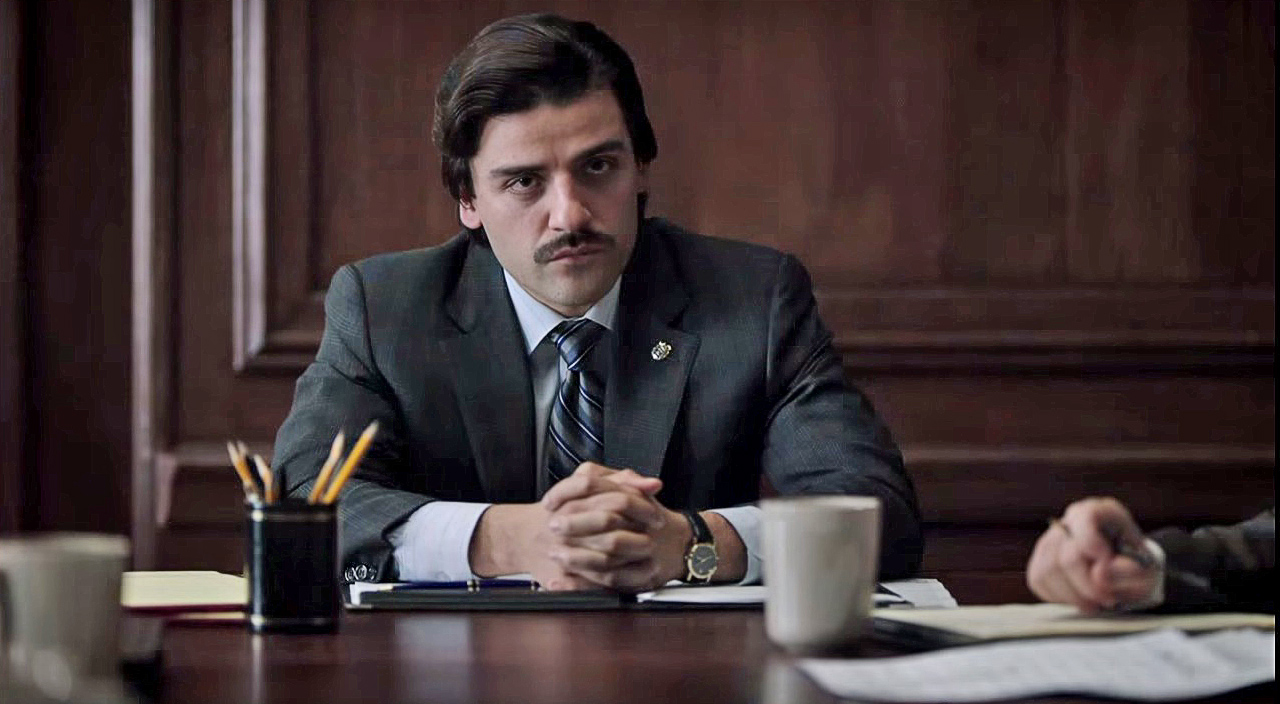
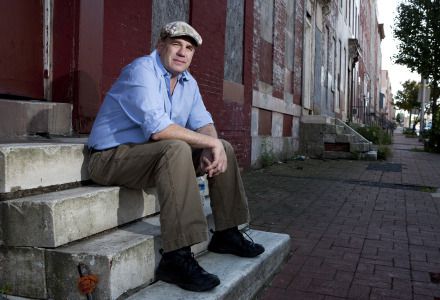
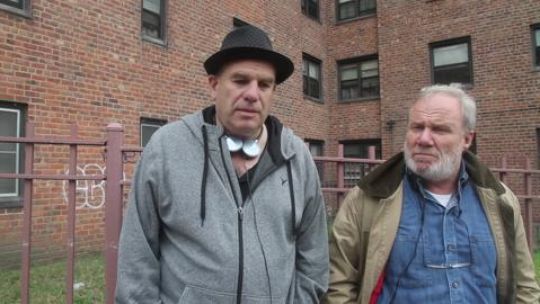

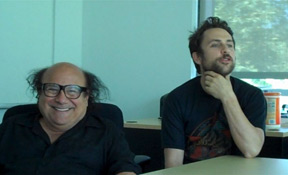
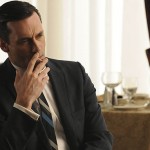
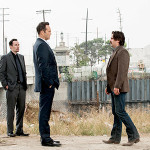
Leave a Reply
Want to join the discussion?Feel free to contribute!